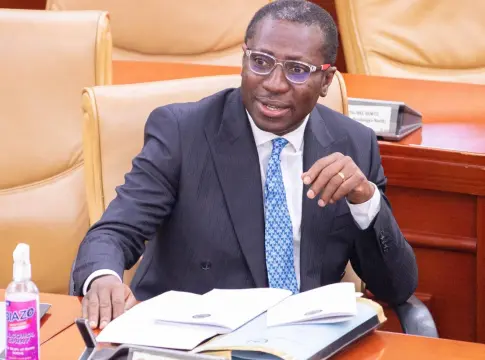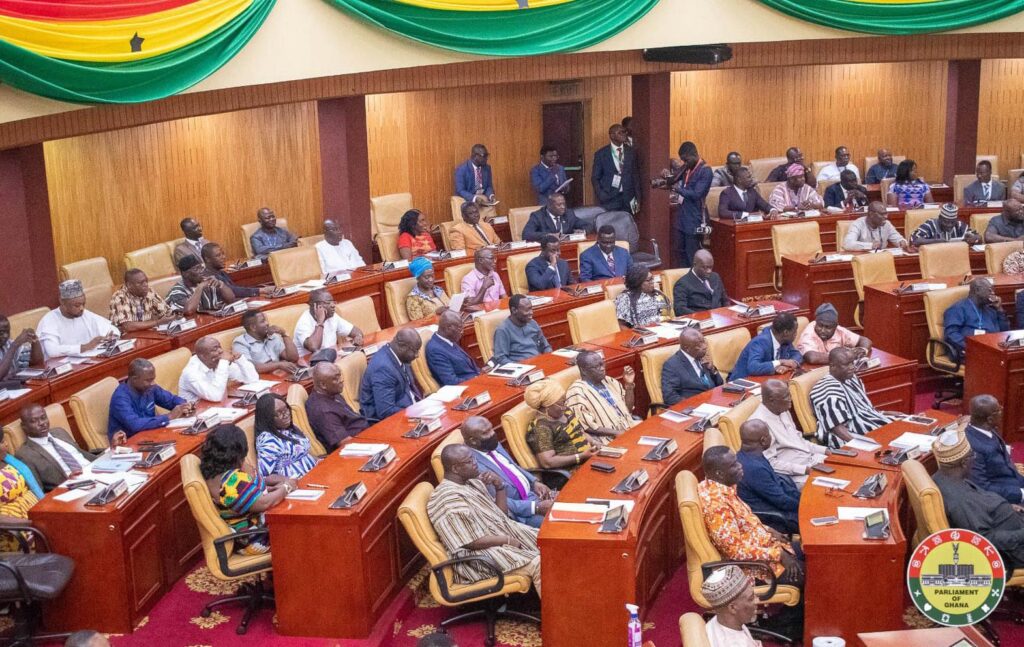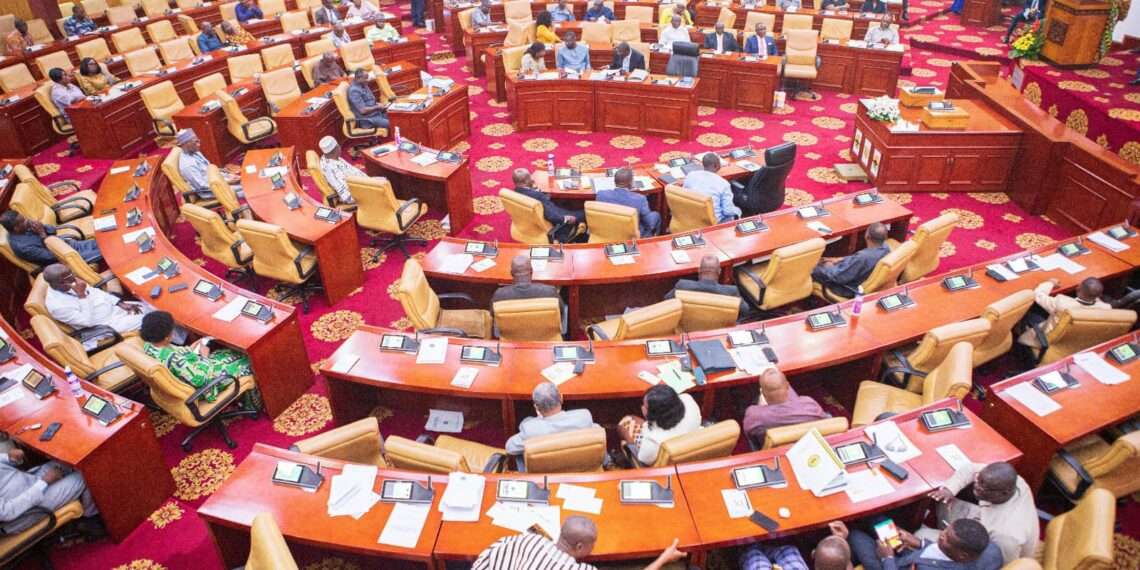At a time when economic governance is increasingly under the microscope, Ghana’s Parliament is being called upon to intensify its oversight role to ensure better transparency, accountability, and fiscal responsibility.
Speaking at the official launch of the “Building the Capacity of Parliamentarians for Economic and Financial Governance” project, the Minority Leader, Hon. Alexander Afenyo-Markin, emphasized that the initiative comes at a critical juncture for both national and global economies.
With countries around the world navigating complex financial environments and citizens demanding greater accountability for how public funds are spent, the project is designed to sharpen the skills of lawmakers.
Afenyo-Markin described the program as a timely intervention that will strengthen Parliament’s ability to provide effective financial oversight.
“Day in and day out, citizens are demanding transparent and prudent leadership, fiscal discipline, results-driven governance, and real value for every taxpayer’s money spent. As such, there is a need to sharpen and strengthen the oversight capacity of Members of Parliament in the vital areas of finance and economic governance to make such oversight more effective.
“This project speaks directly to the responsible governance that our times demand and will equip us, as Parliamentarians, with the knowledge and tools to rise to that expectation.”
Hon. Alexander Afenyo-Markin
As such, Afenyo-Markin emphasized that in any democratic system, safeguarding public funds is not only a constitutional duty but also a moral responsibility.
According to him, every parliamentary decision has far-reaching implications for economic progress and the public’s trust in democratic institutions.
The Minority Leader argued that Parliament’s responsibility goes beyond legislation. Oversight, particularly in matters of finance, is essential.

He stressed the need for parliamentarians to become credible fiscal stewards, grounded not in partisanship, but in “principled clarity and a deep appreciation” of the country’s economic realities.
Afenyo-Markin also pointed to a critical shortcoming: without continuous education and development, Members—especially those in the Minority—will struggle to hold government accountable or offer informed alternatives.
He warned that simply mastering the procedure is no longer enough; lawmakers need deep, practical knowledge of finance and economics to be effective.
Capacity Building, A Critical Step
Furthermore, Hon. Alexander Afenyo-Markin emphasized that while procedural tools like motions and debates play an important role, they are ineffective without a solid grasp of the underlying issues.
He pointed out that a deeper level of analysis is essential for interpreting data, examining budget allocations, measuring progress, and determining whether government spending is truly contributing to economic growth and human development.
The new initiative aims to provide Members with the technical know-how needed to evaluate the implementation and outcomes of policies—not just the plans.
This includes deeper engagement with fiscal discipline, efficient budget allocation, and responsible expenditure monitoring.

“Parliament has, over the years, demonstrated greater engagement in budgetary and financial oversight. Through the work of committees such as the Public Accounts Committee (which is now chaired by the Minority), Finance Committee, Economy and Development Committee, and the Budget Committee, this House has consistently challenged irregularities, demanded the enforcement of audit recommendations, and contributed meaningfully to key financial and economic reforms.”
Hon. Alexander Afenyo-Markin
He lauded their efforts to enforce audit recommendations and push for critical financial reforms.
He also praised mechanisms like the Post-Budget Workshop, which have contributed to improved budget scrutiny over the years.
This new capacity-building project builds on that foundation. By enhancing MPs’ ability to decode economic data and policy frameworks, the initiative aims to increase the quality and substance of parliamentary engagement.
Referring specifically to Ghana’s economic environment, the lawmaker noted that stronger oversight is urgently needed.
The country’s efforts to reduce public debt and reform its fiscal practices depend on Parliament’s ability to critically assess government actions.
Meanwhile, Analysts of the 2025 Budget have already warned that only a blend of strict fiscal discipline, prudent debt management, and an active domestic bond market can help restore investor confidence.
Empowering Parliament, Key To Accountability
According to Hon. Afenyo-Markin, achieving true accountability begins with empowering MPs, committee members, and parliamentary researchers with strong analytical skills.
He believes that when legislators are able to comprehend financial figures and the broader policy landscape, parliamentary debates become more meaningful and decisions yield more effective results.

He also reaffirmed that the Minority fully supports the initiative. Capacity building, he said, is not a one-time event but a long-term process that will require sustained commitment.
He encouraged all Members to take advantage of the training sessions, regardless of party affiliation.
“Every member of this House stands to gain from better knowledge and training,” he said, urging his colleagues to approach the program with the understanding that Parliament’s effectiveness is a shared priority that transcends partisan lines.
He ended his address by expressing gratitude to the Speaker of Parliament, the parliamentary leadership, the World Bank Group, the UK Foreign, Commonwealth & Development Office (FCDO), and all collaborators for their role in making the project a reality.
He stressed that the training being offered would help ensure that every Ghanaian cedi is spent with due diligence and accountability.
“I have no doubt that the outcome of this partnership will be positive for our nation,” he concluded, noting that empowering MPs with the knowledge of resource mobilization, budget discipline, and accountability is key to boosting public trust in government and delivering real economic outcomes.
READ ALSO: Tyler Perry Accused of Sexual Misconduct in $260 million Lawsuit




















